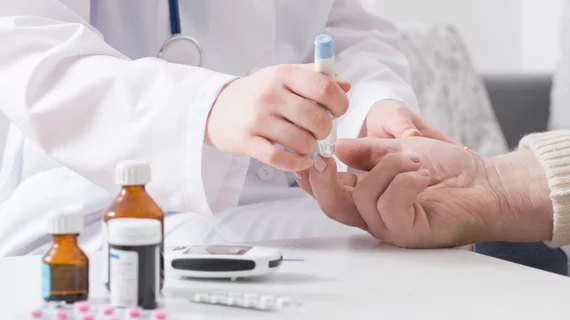After pricing pushback, Eli Lilly will sell a half-price insulin drug
Drug manufacturer Eli Lilly plans to offer a half-priced version of its insulin medication Humalog, the company announced March 4.
The move comes after the drug industry has come under fire for sky-high prices that have continued to rise over the last several years. Insulin in particular has borne the brunt of the criticism, as some of the top drugmakers have raised prices nearly 600 percent over the last 15 years. Diabetes affects more than 30 million Americans, according to the CDC. Congress also recently launched an investigation on drug prices, sending letters to 12 drug companies asking for detailed information and documents about prices.
According to Eli Lilly, the new insulin drug, called Lispro, will have a list price 50 percent lower than the current Humalog price. The price of a single vial will BE $137.35, with a five-pack of KwikPens coming in at $265.20.
"We've engaged in discussions about the price of insulin with many different stakeholders in America's healthcare system: people living with diabetes, caregivers, advocacy groups, health care professionals, payers, wholesalers, lawmakers and leading healthcare scholars," David A. Ricks, Lilly's chairman and CEO, said in a statement. "Solutions that lower the cost of insulin at the pharmacy have been introduced in recent months, but more people need help.”
The drug has already been manufactured, and Eli Lilly is working with its supply chain partners to make it available, the company stated. The drugmaker’s action comes on the heels of several proposals from CMS and the Trump administration aimed at lowering drug prices. President Trump in particular have been very vocal about lowering prices, even calling out specific companies for increasing prices.
Recently, HHS proposed eliminating the rebate system currently in the drug industry. The proposal aims to encourage drugmakers to pass savings on directly to consumers instead of working out prices through pharmacy benefit managers (PBMs). PBMs have also seen an onslaught of criticism for their role in high drug prices, with some calling the rebate system too opaque.
"The significant rebates we pay on insulins do not directly benefit all patients. This needs to change," Ricks said. "There are numerous ideas, including the rebate reform proposal from HHS. For people with diabetes, a lower-priced insulin can serve as a bridge that addresses gaps in the system until a more sustainable model is achieved."
According to Eli Lilly, the last increase in the list price of Humalog was in May 2017.

